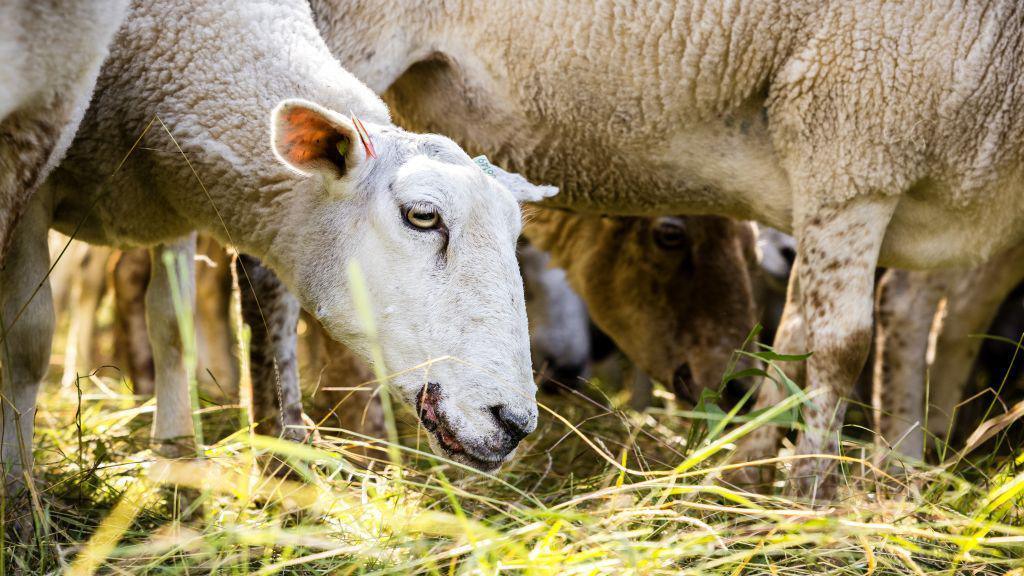First cases of bluetongue found in sheep in Wales
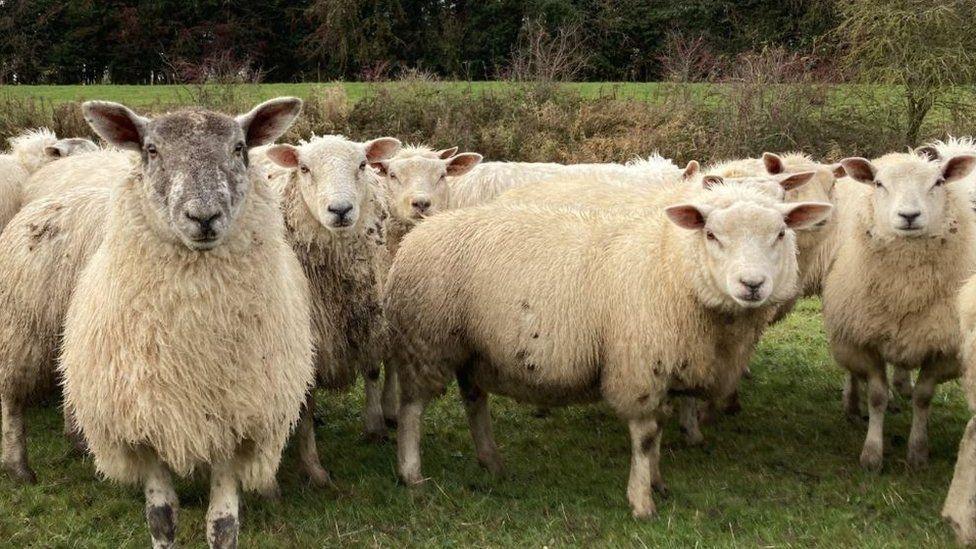
Bluetongue affects ruminants including sheep, in which it causes serious illness and death
- Published
A new strain of the bluetongue virus has been found in sheep in Wales for the first time.
Three cases of Bluetongue-3, or BTV-3, were identified in animals moved from the east of England to Gwynedd.
Restriction zones to help stem the spread of the disease now cover the whole of the south-east England because of cases found there.
In May the Welsh government urged farmers to look out for it and ensure livestock is sourced safely, external.
Bluetongue is caused by a virus spread by midges. It affects cattle, goats, sheep and deer and members of the camel family.
It does not affect people or food safety.
The farmers growing food in garages and barns
- Published24 July 2024
Farming future is high-tech and diverse
- Published23 July 2024
King exempt from Wales' farming-law prosecution
- Published11 April 2024
Investigations are taking place on the affected farm to see if more controls are needed.
Deputy chief vet, Gavin Watkins, said: "The cases identified in Gwynedd are from animals brought into Wales.
"We will apply measures to stop the disease spreading from these three sheep and our aim remains to keep Wales free of bluetongue."
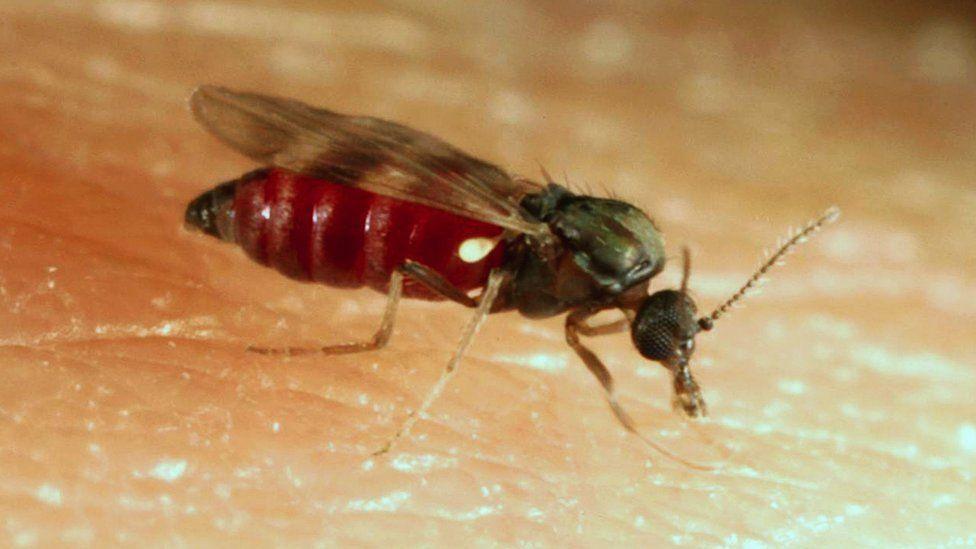
Infected culicoides midges blown over from northern Europe can infect livestock with one bite
He urged people to report suspected cases to the Animal and Plant Health Agency (APHA).
The Welsh government said the impact on animals can vary.
Some show no clinical signs or effects but for others it can cause productivity problems such as reduced milk yield or reproductive losses.
In the most severe cases can be fatal for infected animals.
There is evidence dogs and other carnivores can get bluetongue if they eat infected material, including aborted material or afterbirth.
Related topics
- Published7 May 2024
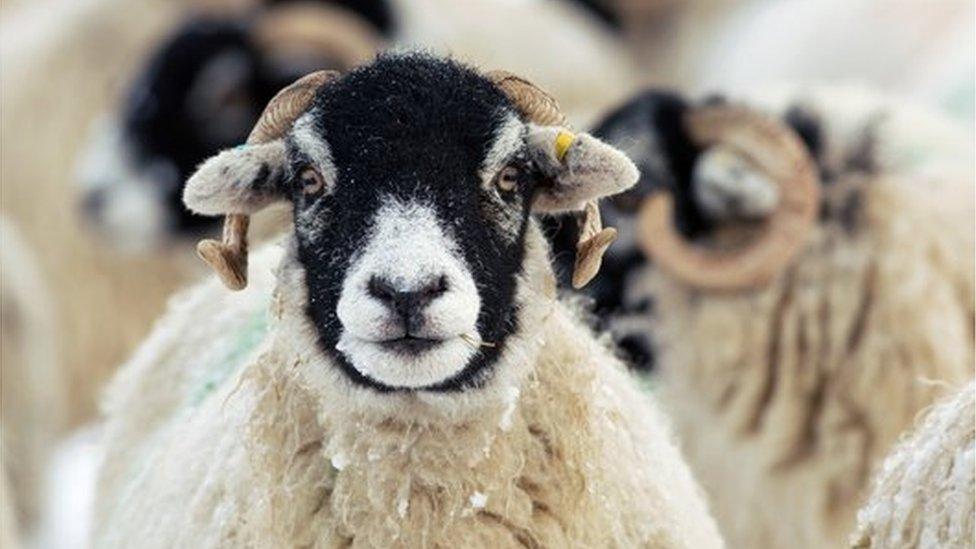
- Published31 August 2024
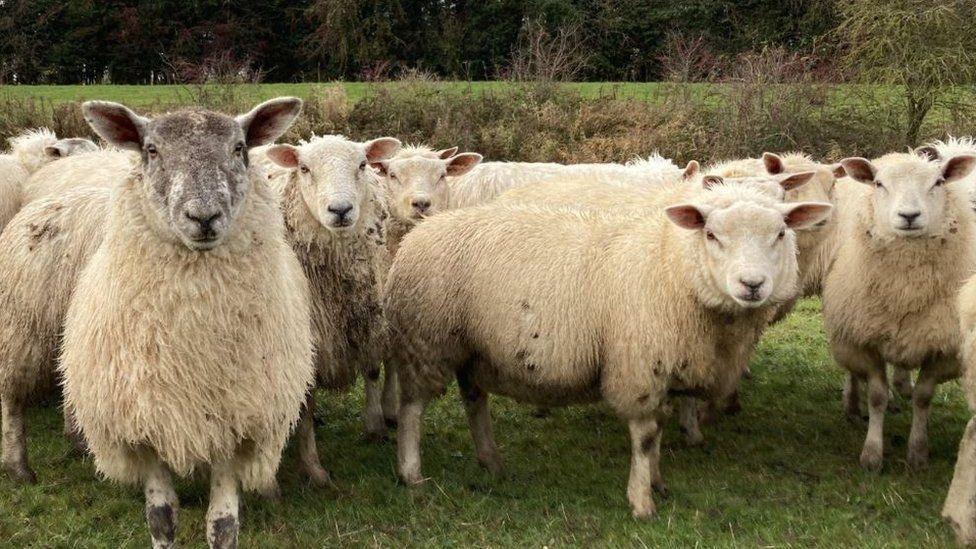
- Published21 September 2024
